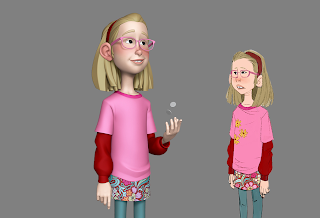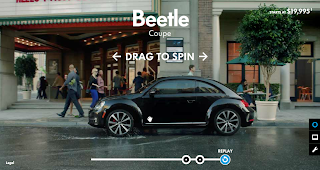http://www.zbrushcentral.com/showthread.php?178524-Wreck-it-ralph!
Sunday, July 28, 2013
Thursday, July 25, 2013
Tuesday, July 23, 2013
Flinders street station shortlist reveals fantastic proposals
http://www.designboom.com/architecture/flinders-street-station-shortlist-reveals-rejuvenating-proposals/
Friday, July 19, 2013
ferrari design series
http://www.designboom.com/technology/hublot-masterpiece-mp-05-laferrari-watch/
http://www.designboom.com/technology/ferrari-laferrari-electric-hybrid-supercar/
http://www.designboom.com/technology/the-ferrari-ff-a-v12-four-seater-with-four-wheel-drive/
Tuesday, July 16, 2013
Sunday, July 14, 2013
Design Brief Template
Design Brief Template
A
design brief establishes clear expectations between a business and the
designer. A design brief template cannot be a ‘one size fits all’ because
design projects vary so much, ranging from product innovation and improvement,
to service delivery, software development and graphic design. Use this template
as a starting point and modify as necessary. When you have finished delete the
blue instructional text.
Business name:
Client contact:
Contact number:
Due date for completion: <if you have any dependencies which
make a particular start and end date critical make sure you communicate these
before you brief a designer. You may need to negotiate with the designer
depending on how in-demand they are and the complexity of the project. The due
date for completion is when you expect to have the final, approved design in
your hand, ready for use. >
Review date/s: <there should be at least one client
review to ensure the design meets client expectations. You can also use this
section to specify completion dates of other key stages.>
Budget: <provide an idea of how much money you
plan to spend. This enables the designer to be realistic when they provide
options.>
Product/service/brand name: <aim to reflect the purpose of the
design project in its title. If it’s in the public domain title may need to
include branding.>
Key objectives: <main business benefits of getting this design
successfully delivered.>
Marketing objectives and target audience: <detailed description of the target
market and marketing approach. Include details such as occupation, gender
ratio, average age, nationality/location, psychological demographic, lifestyle
preferences, advertising and promotional plans, distribution etc.>
Regulatory issues: <note any regulations which will impact the design e.g.
product labelling laws.>
Scope: <detailed list of everything this project is expected to
deliver.>
Not in scope: <use this section to specify design elements that are out
of scope e.g. if you're completing a web design project but don’t want an email
newsletter.>
Purpose and function: <use this section if you are briefing a product designer.
To be able to provide a workable design, the designer needs to know what the
product is supposed to be able to do, who will be using it and in what circumstances.
This information may be obvious to the inventor but still needs to be spelled
out clearly for the designer.>
Format: <use this section if you are briefing a graphic designer.
Depending on how you plan to use the design(s) specify if it is for print or
web, file format, file size, resolution or other attributes. For printed items
tell the designer about the stock you plan to use as factors such as absorbency
can affect the final result and therefore the designer's approach.>
Design Project plan: <list the project milestones, what is needed to complete
them and who is responsible.>
Attachments: <provide anything you want to use e.g. existing logos,
sketches of prototypes, examples of designs or products (as benchmarks or
comparison), or competitors you need to stand out from. Ask the designer to
specify requirements such as minimum resolutions for samples to be used in the
final design.>
Measures of success: <how will you ensure the design is appropriate for your
objectives and audience e.g. will you show samples to your potential customers,
run surveys etc.>
VVBDES402A - Interpret and respond to design brief
VVBDES402A - Interpret and respond to design brief
|
1. COURSE
DETAILS
|
|||
|
National Course Code
|
VCUV40303
|
Course Title
|
Certificate IV in Design
|
|
National
Unit Code
|
VVBDES402A
|
Unit Title
|
Interpret and respond to a brief
|
|
2. GROUP
DETAILS
|
|||
|
Group Name
|
CERT IV
|
Group Title
|
|
|
Day
|
Mondays
|
Room
|
WS202
|
|
Unit Start
Date
|
15/7/13
|
Start Time
|
|
|
Unit End Date
|
29/10/13
|
Finish Time
|
|
|
3. CONTACT DETAILS
|
|||||
|
|
Name
|
Room
|
Phone
|
Email
|
|
|
Teacher
|
Kai Cheng
|
WD259
|
|
kcheng
|
@swin.edu.au
|
|
Senior
Educator
|
|
WD257
|
|
|
@swin.edu.au
|
|
Administration
|
|
WD260
|
|
|
@swin.edu.au
|
|
4. LEARNING RESOURCES
|
|
|
Blackboard 9.1 - iLearn
|
(additional learning
materials, resources, assessments, quizzes etc can be access via the link)
|
|
Books
|
Various
|
|
Material
|
USB storage device, digital camera, A3 visual workbook, pencils,
drawing pens, colour markers, steel rule, cutting knife, scissors, glue, A3
plastic presentation sleeves, additional items as required
|
|
Other
|
Websites to look at: ADGA, ICOGRADA, The Design Files, DIA, AGideas
|
|
5. UNIT
DETAILS
|
||||||||||
|
Unit Type
|
Core
|
✓
|
Elective
|
|
Result
|
Graded
|
✓
|
Ungraded
|
|
|
|
Pre/Co Requisites
|
None
|
|||||||||
|
Description
|
This unit describes the skills and knowledge required to interpret and
respond to a brief. As such the unit is holistic in nature and focuses on the
overall work process to meet the requirements of a brief.
|
|||||||||
|
Elements
|
1
|
Interpret the brief
|
||||||||
|
2
|
Develop and refine the design concept
|
|||||||||
|
3
|
Liaise with the client
|
|||||||||
|
4
|
Plan the production of the work
|
|||||||||
|
5
|
Complete the production of the work
|
|||||||||
|
6. ASSESSMENT DETAILS
|
|||
|
Assessment
Task
|
Mark*
Graded units only
|
Due
Date
|
|
|
green energy / environment protection poster design
You are to design an A3 poster that advertises/promotes green energy
or environment protection. Your audience will depend on the topic you have
chosen.
There are no budget or colour restrictions. However, all images,
illustrations, photos are to be original and generated by you. You are to
provide a statement of approximately 150 words explaining the topic you have
chosen, your thoughts on it, why you have chosen it and how you intend to use
your poster to advertise/promote this topic.
|
100
|
2 July 2012
|
|
|
|
Total
|
100
|
|
Refer to student handbook for explanation of
result codes.
Decision Making
Rules
Decision making rules must be provided for the unit eg: every task must be completed satisfactorily for competence to be
achieved.
* For graded units, competence must be demonstrated
before a mark will be given.
|
7. SCHEDULE
|
||
|
Date
|
Week
|
Topic/activity/assessment
|
|
|
1
|
Introduction
of unit:
Unit outline, delivery, student expectations and its context in the
industry.
Discussion
and presentation:
What is a brief? Show examples of briefs. Student project briefs,
client briefs – verbal or written.
Understanding and Interpreting a Design Brief (Identity Design)
https://www.youtube.com/watch?v=zrfCXLEQpE0
Design Brief
http://www.kwikkopy.com.au/graphic-design/design-brief
Interpret the Design brief and follow the Design process
http://www.creative-choices.co.uk/develop-your-career/unit/des18
Top 10 tips for a great graphic design brief
http://www.snap.com.au/articles/top-10-tips-for-a-great-graphic-design-brief.htm
Design Brief Template
|
Subscribe to:
Comments (Atom)












